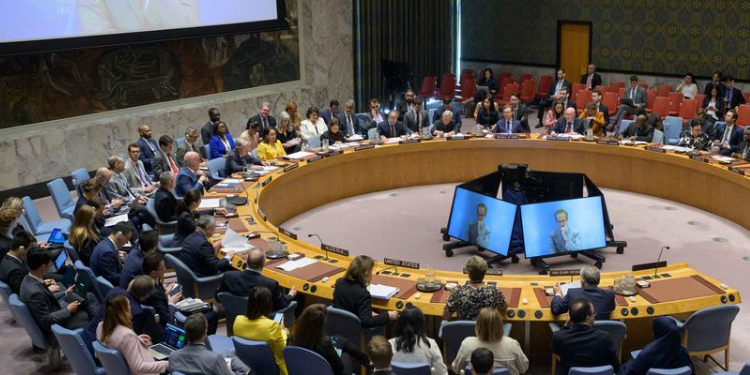The United Nations Security Council (UNSC) has cast its vote on whether to reimpose sanctions on Iran over its nuclear program, a move triggered by Britain, France, and Germany amid ongoing concerns about Tehran’s compliance with the 2015 nuclear deal.
The three European countries—known collectively as the “E3” — are signatories of the Joint Comprehensive Plan of Action (JCPOA), the 2015 agreement aimed at preventing Iran from developing nuclear weapons.
They argued that Iran has violated several terms of the treaty, including stockpiling uranium far beyond permitted levels, and has invoked the “snapback” mechanism embedded in the deal to restore UN sanctions.
The Security Council’s rotating presidency had confirmed the vote would take place on Friday at 10 a.m. local time (1400 GMT). Diplomatic sources anticipated that the resolution to maintain sanctions relief would fail to secure the nine votes required to pass, potentially resulting in the automatic reimposition of sanctions.
Iran hits out ahead of UN vote on nuclear sanctions
Earlier, Iran had vehemently rejected the E3’s accusations and the snapback process, accusing the European countries of “political bias” and misusing the treaty’s dispute resolution mechanism.
“What Europeans are doing is politically biased and politically motivated … They are wrong on different levels by trying to misuse the mechanism embedded in the Joint Comprehensive Plan of Action (JCPOA),” Deputy Foreign Minister Saeed Khatibzadeh said.
JCPOA, concluded in July 2015 between Iran and the P5+1 group-China, France, Russia, the United Kingdom, the United States, and Germany-placed strict limits on Iran’s nuclear activities in exchange for lifting UN sanctions imposed since 2006.
The deal was endorsed unanimously by the Security Council under Resolution 2231, which also established a “snapback” mechanism allowing any participant to reimpose sanctions if another party was found in “significant non-performance.”
Details about Joint Comprehensive Plan of Action
After the United States withdrew unilaterally from the JCPOA in 2018 under President Donald Trump and reinstated sanctions on Tehran, Iran gradually ceased full compliance, expanding its nuclear activities and uranium enrichment beyond the deal’s limits.
Also Read: Trump Administration Imposes Sanctions on 2 Sudan Actors, Blames Iran for Interference
Tensions escalated further following a 12-day conflict between Iran and Israel in June 2025, leading Tehran to suspend cooperation with the International Atomic Energy Agency (IAEA) and expel inspectors.
In late August 2025, the E3 formally notified the Security Council that Iran was in “significant non-performance” of its JCPOA obligations, triggering the 30-day snapback process. If the Council failed to pass a resolution to maintain sanctions relief within this period, the previous UN sanctions would automatically snap back into force.
While the Europeans offered to delay the sanctions reimposition by up to six months if Tehran restored access to UN inspectors and resumed talks with the United States, Iranian officials insist they have made reasonable proposals and remain committed to their obligations under the Treaty on the Non-Proliferation of Nuclear Weapons (NPT).
Following an agreement in early September between Iran and the IAEA to resume limited cooperation, negotiations have nevertheless stalled, with the E3 maintaining that Iran has yet to take the “reasonable and precise actions” necessary to avoid sanctions.
Possible outcomes that were expected
The draft resolution presented by the Republic of Korea, which currently holds the Security Council presidency, aimed to continue the termination of previous UN sanctions on Iran, effectively maintaining the status quo.
Also Read: Trump Govt Calls for Emergency UN Security Council Meeting Over DRC
However, the vote was expected to be highly contested. At least three members, including China, Russia, and Pakistan, were predicted to support the draft resolution.
Conversely, at least eight members, including the United States, the United Kingdom, France, Denmark, Greece, Panama, Slovenia, and the Republic of Korea itself, were expected to oppose or abstain. If the resolution were to secure nine votes, a US veto was anticipated, which would block the draft’s passage.
If the resolution failed to pass, either by falling short of votes or through a veto, and the Security Council does not take further action, the 2015 sanctions on Iran will be reinstated automatically on September 28, marking the end of the 30-day snapback period.
The reimposition of sanctions could significantly impact Iran’s nuclear program and its relations with the international community. It may also complicate ongoing diplomatic efforts, particularly as the UN General Assembly (UNGA) meets next week in New York during its high-level week, which could provide an opportunity for renewed negotiations.
Meanwhile, China and Russia have proposed an alternative draft resolution to extend the JCPOA and sanctions relief for six months, until April 2026, but they have yet to request a vote on this proposal.
Follow our WhatsApp Channel and X Account for real-time news updates.
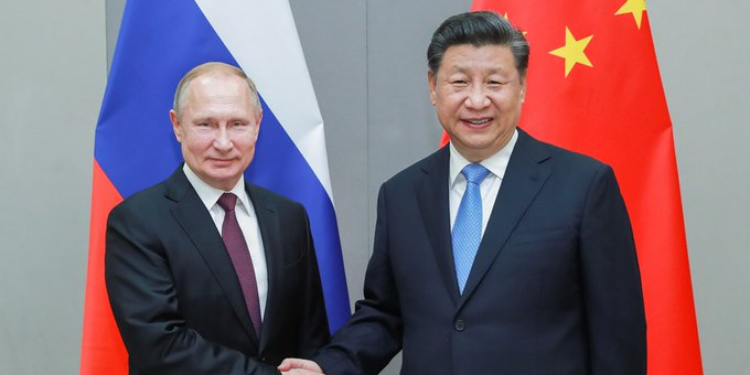


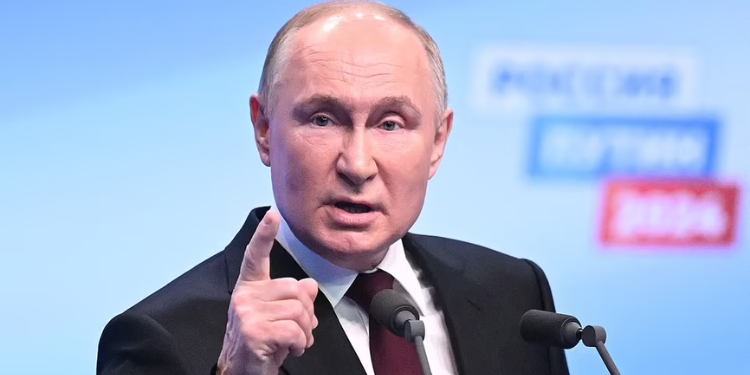
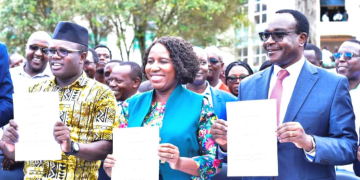
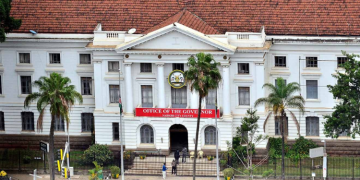
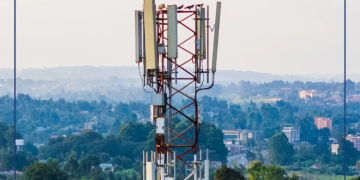


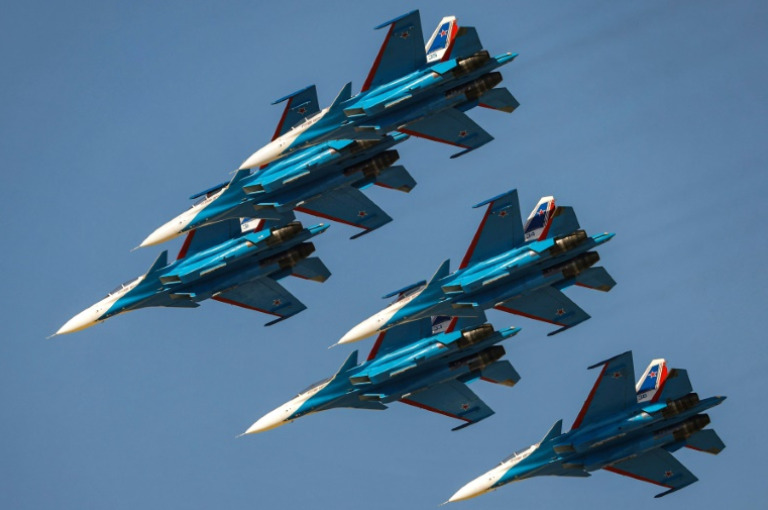
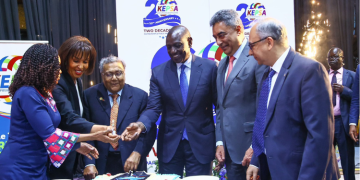








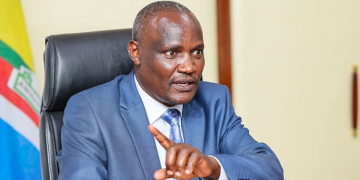
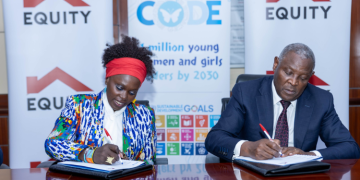
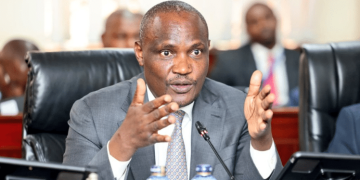




























![Senator Allan Chesang And Chanelle Kittony Wed In A Colourful Ceremony [Photos] Trans Nzoia Senator Allan Chesang With Channelle Kittony/Oscar Sudi]( https://thekenyatimescdn-ese7d3e7ghdnbfa9.z01.azurefd.net/prodimages/uploads/2025/11/Trans-Nzoia-Senator-Allan-Chesang-with-Channelle-KittonyOscar-Sudi-360x180.png)




















